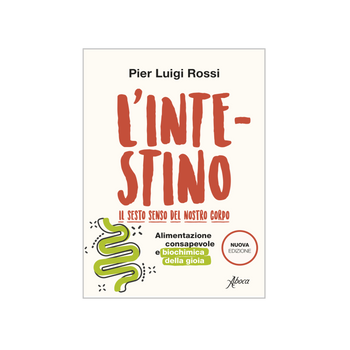At the beginning of time, the universe consisted of simple atomic systems. However, increasingly complex molecular systems gradually developed, eventually giving rise, on our planet, to living beings.
Since the appearance of life there has been a close relationship between living beings and the environment surrounding them. Since ancient times, humans - whose intelligence enabled the mastery of nature - have “exploited” other living beings, both animals and plants, using them not only as food but also as “medicines” to treat disease.
In modern times, the concept of health has become associated with the use of ever less complex drugs, most of which consist of simple molecules. However, experimental data from phytotherapy shows that the biological activity ascribed to the active molecules in a natural extract is often greater than that of the same components in a purified and/or synthetic form.
The theory postulated herein differs from the generally accepted hypothesis, as it is based on the premise of biological synergism betwen the different chemicals in the natural substrate. In fact, it is essential to take account of the molecular interactions originating from the high complexity of the natural matrix, which lead to the formation of complexes according to the rules of supramolecular chemistry. The formation of such complexes between the active substance and the other molecules present in the natural environment leads to conformation enabling more effective interactions with the receptor site, as the structures of the natural substances are not free but are “locked” into place, ready for interaction with the human body.
Now more than ever there is a need for a global, integrated understanding of living systems. Methods involving the breakdown, isolation and characterisation of each individual molecule, cell and element of a complex system, while useful, have not led to an understanding of the complex interactions between the various parts. And yet the complex molecular systems found in nature have always been the key to human health. It is our task to study them in their natural state, searching for new tools and suitable methods to understand and master them.
Anna Gaetano, has a degree in Pharmaceutical Biotechnologies and has been working in the phytochemistry research laboratory at Aboca SpA, Sansepolcro, since 2010
Jacopo Lucci, PhD is Chief Scientific Officer at Natural Biomedicine SpA, Sansepolcro
Luisa Mattoli, has a PhD in Chemistry and Pharmaceutical Technology and has been head of the phytochemistry research laboratory at Aboca SpA, Sansepolcro, since 2010
Valentino Mercati, is Chairman of Aboca Planta Medica Group. For Aboca Edizioni he also wrote A far belle le donne di Piero - Segreti e ricette di bellezza (2007), L'iperico che cambia l'umore - Dalla tradizione millenaria ai moderni impieghi clinici in medicina e psichiatria (2008), Il valore dell'Aloe - Storia, coltivazione, moderni impieghi salutistici (2009)
Vitalia Murgia, is a paediatrician and lecturer in the PhD course in Phytotherapy at University La Sapienza of Rome and the international PhD course in Phytotherapy at the Universities of Trieste and Madrid. She is the author of numerous scientific articles and treatises. For Aboca Edizioni she also wrote Disturbi del sonno nel bambino (2008), Problemi del bambino - Approccio integrato con le Piante Medicinali (2009), Il modello dell'omeostasi - Salute Malessere Malattia (2010)
Eugenio Ragazzi is Professor of Pharmacology at the Faculty of Medicine, University of Padova, a position he has held since 1992
Francesco Tisato, has a degree in Chemistry and has been employed as a researcher at the Italian National Research Council (CNR) since 1984. He formerly conducted research into radiopharmaceuticals at MIT, Cambridge (MA) and the University of Cincinnati (OH)
Pietro Traldi, has a degree in Physics and was employed at the Italian National Research Council (CNR) as a researcher from 1970 to 2012, where he was Research Director for the last 20 years of his career. He is the author of more than 650 scientific publications.
At the beginning of time, the universe consisted of simple atomic systems. However, increasingly complex molecular systems gradually developed, eventually giving rise, on our planet, to living beings.
Since the appearance of life there has been a close relationship between living beings and the environment surrounding them. Since ancient times, humans - whose intelligence enabled the mastery of nature - have “exploited” other living beings, both animals and plants, using them not only as food but also as “medicines” to treat disease.
In modern times, the concept of health has become associated with the use of ever less complex drugs, most of which consist of simple molecules. However, experimental data from phytotherapy shows that the biological activity ascribed to the active molecules in a natural extract is often greater than that of the same components in a purified and/or synthetic form.
The theory postulated herein differs from the generally accepted hypothesis, as it is based on the premise of biological synergism betwen the different chemicals in the natural substrate. In fact, it is essential to take account of the molecular interactions originating from the high complexity of the natural matrix, which lead to the formation of complexes according to the rules of supramolecular chemistry. The formation of such complexes between the active substance and the other molecules present in the natural environment leads to conformation enabling more effective interactions with the receptor site, as the structures of the natural substances are not free but are “locked” into place, ready for interaction with the human body.
Now more than ever there is a need for a global, integrated understanding of living systems. Methods involving the breakdown, isolation and characterisation of each individual molecule, cell and element of a complex system, while useful, have not led to an understanding of the complex interactions between the various parts. And yet the complex molecular systems found in nature have always been the key to human health. It is our task to study them in their natural state, searching for new tools and suitable methods to understand and master them.
Anna Gaetano, has a degree in Pharmaceutical Biotechnologies and has been working in the phytochemistry research laboratory at Aboca SpA, Sansepolcro, since 2010
Jacopo Lucci, PhD is Chief Scientific Officer at Natural Biomedicine SpA, Sansepolcro
Luisa Mattoli, has a PhD in Chemistry and Pharmaceutical Technology and has been head of the phytochemistry research laboratory at Aboca SpA, Sansepolcro, since 2010
Valentino Mercati, is Chairman of Aboca Planta Medica Group. For Aboca Edizioni he also wrote A far belle le donne di Piero - Segreti e ricette di bellezza (2007), L'iperico che cambia l'umore - Dalla tradizione millenaria ai moderni impieghi clinici in medicina e psichiatria (2008), Il valore dell'Aloe - Storia, coltivazione, moderni impieghi salutistici (2009)
Vitalia Murgia, is a paediatrician and lecturer in the PhD course in Phytotherapy at University La Sapienza of Rome and the international PhD course in Phytotherapy at the Universities of Trieste and Madrid. She is the author of numerous scientific articles and treatises. For Aboca Edizioni she also wrote Disturbi del sonno nel bambino (2008), Problemi del bambino - Approccio integrato con le Piante Medicinali (2009), Il modello dell'omeostasi - Salute Malessere Malattia (2010)
Eugenio Ragazzi is Professor of Pharmacology at the Faculty of Medicine, University of Padova, a position he has held since 1992
Francesco Tisato, has a degree in Chemistry and has been employed as a researcher at the Italian National Research Council (CNR) since 1984. He formerly conducted research into radiopharmaceuticals at MIT, Cambridge (MA) and the University of Cincinnati (OH)
Pietro Traldi, has a degree in Physics and was employed at the Italian National Research Council (CNR) as a researcher from 1970 to 2012, where he was Research Director for the last 20 years of his career. He is the author of more than 650 scientific publications.













